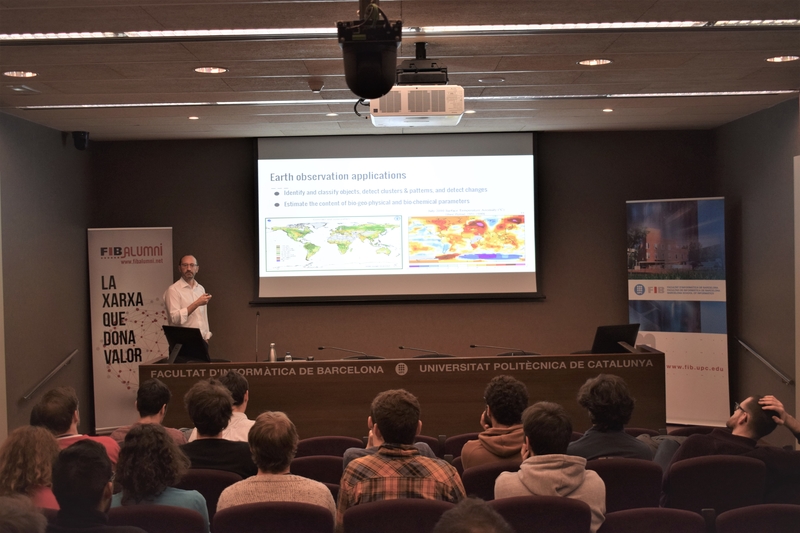Objectives
Please click here to download the presentation
Abstract: The Earth is a complex dynamic network system. Modelling and understanding the system is at the core of scientific endeavour. We approach these problems with machine learning algorithms. I will review several ML approaches we have developed in the last years: 1) advanced Gaussian processes models for bio-geo-physical parameter estimation, which can incorporate physical laws, blend multisensor data while providing credible confidence intervals for the estimates and improved interpretability, 2) nonlinear dimensionality reduction methods to decompose Earth data cubes in spatially-explicit and temporally-resolved modes of variability that summarize the information content of the data and allow for identifying relations with physical processes, and 3) advances in causal inference that can uncover cause and effect relations from purely observational data.
Short bio: Gustau Camps-Valls (IEEE Fellow'18, IEEE Distinguished lecturer, PhD in Physics) is currently a Full professor in Electrical Engineering and head of the Image and Signal Processing (ISP) group, http://isp.uv.es. He is interested in the development of machine learning algorithms for geosciences and remote sensing data analysis. He is an author of around 200 journal papers, more than 200 conference papers, 20 international book chapters, and editor of 4 books on kernel methods and deep learning. He holds a Hirsch's index h=60, entered the ISI list of Highly Cited Researchers in 2011, and Thomson Reuters ScienceWatch identified one of his papers on kernel-based analysis of hyperspectral images as a Fast Moving Front research. He received two European Research Council (ERC) grants: an ERC Consolidator grant on "Statistical learning for Earth observation data analysis" (2015) and an ERC Synergy grant on "Understanding and Modelling the Earth system with machine learning" (2019). In 2016 he was included in the prestigious IEEE Distinguished Lecturer program of the GRSS.


